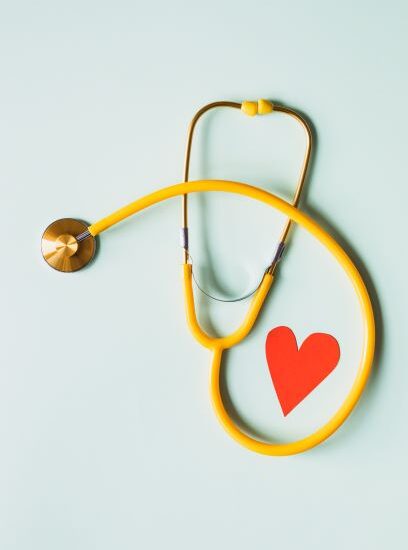Is cholesterol your key to healthy heart?

You might have tried to unclog your clogged drain many times but has it ever struck you that the same kind of blockage might be developing in arteries inside your body too? Shocking, but it might happen to you, albeit in your ignorance. Yes, that’s what cholesterol; a wax-like substance present in our blood stream, does silently to your arteries and might harm your heart. know what cholesterol is or specifically what is LDL cholesterol and HDL cholesterol. Read on to know ‘is cholesterol your key to healthy heart?’
What is cholesterol?
Cholesterol is a wax-like substance present in our blood stream. Cholesterol is present in our body cells and it has many important functions such as in digestion of food, hormone production, and generating vitamin D. Our body gets cholesterol from two sources. Our liver makes all the cholesterol that we need. The Other source of cholesterol is our food. As cholesterol level in our blood increases beyond normal, our risk of suffering from heart disease and stroke also increases.
How cholesterol circulates?
Cholesterol circulates in our blood. Cholesterol gets attached to proteins and it gets carried in our blood. This attachment or combination of proteins and cholesterol is called lipoprotein.
There are two different types of lipoproteins which carry cholesterol to and from our body cells. One of these is Low Density Lipoprotein or LDL and other one is High Density Lipoprotein or HDL
Types of cholesterol: the good and the bad
There are two different types of cholesterol depending on what lipoprotein carries– LDL cholesterol and HDL cholesterol. The LDL cholesterol is considered as bad cholesterol and HDL cholesterol is considered as good cholesterol.
Why good or bad cholesterol?
LDL cholesterol is considered as bad cholesterol because it carries cholesterol particles in the entire body and so it leads to fatty build-ups in arteries. As LDL cholesterol gets accumulated in the walls of arteries, it makes arteries hard and narrow and thus increases the risk of heart attack, stroke and other diseases.
HDL cholesterol, on the other hand, is considered as good cholesterol because it collects excess cholesterol from arteries and transports it to our liver where it is broken down and is passed from our body.
Triglycerides
Triglycerides are common fat present in our body. Triglycerides store excess energy from our food. If our body has high level of triglycerides along with high LDL cholesterol and low HDL cholesterol, it results in fatty build-ups within the arteries and the chances of heart attack and stroke increases manifold.
How cholesterol increases?
There are various factors which contribute to high LDL cholesterol and low HDL cholesterol. Among these factors there are certain factors which can be controlled. Again, there are certain factors which are beyond our control. Factors which you can control are your inactivity, obesity and unhealthy diet. Factors beyond control might be genetic. For example, because of genetic makeup your body cells might not efficiently remove LDL cholesterol from blood or your liver might produce too much cholesterol. Here is how certain factors play a role in raising your cholesterol level:
1. Obesity
If your body mass index or BMI is 30 or more, then you are at a greater risk of having high cholesterol level.
2. Unhealthy diet
If You are consuming saturated fat, found in animal products, or trans fats, found in some commercially baked food, you may increase your cholesterol level. Also, red meat or full fat dairy products which are rich in cholesterol raise the cholesterol level of your body.
3. Lack of exercise
Sweating a lot in gym boosts your body HDL or good cholesterol. As a result, your chance of suffering from cholesterol related diseases becomes less.
4.Age
As you age, your body chemistry changes and you are at a greater risk of having high cholesterol level. This is because with growing age your liver becomes less efficient to remove LDL cholesterol.
5.Diabetes
Having high blood sugar level leads to higher level of very-low-density-lipoprotein (VLDL), another type of very bad cholesterol, and lowers HDL cholesterol. Apart from this, high levels of blood sugar damages the arteries too.
What can high cholesterol cause?
Increased cholesterol level in your body can lead to severe accumulation of cholesterol and other types of deposits on the artery walls. As a result, blood flow through arteries gets substantially reduced and it further can cause many complications.
1.Chest pain
If the coronary arteries which supply blood to your heart are affected, you are likely to have chest pain and other symptoms of coronary artery disease.
2. Heart diseases
Too much LDL cholesterol can clog your arteries and make them less flexible. This hardening of arteries obstructs smooth blood flow. As a result, your heart has to work harder to push blood. Eventually, because of this plaque build-up you might have heart diseases.
3. Heart attack and stroke
Narrowed artery can totally block blood flow to your heart. As a result, you may experience heart attacks. If this blockage occurs in the artery going to the brain, it can cause stroke.
Prevention
Prevention, to a large extent, depends on lifestyle changes. The same lifestyle changes that keep your heart healthy can help you lower cholesterol level in your body. To prevent yourself from having high cholesterol level you can do the following:
1. Cut down consumption of salt, and include more fruits vegetables and whole grain to your diet.
2. Limit your intake of animal fat, and use good fat instead.
3. Try your best to lose weight. Maintaining a healthy weight decreases the risk of a number of diseases.
4. Quit smoking if you do.
5. Spend time in gym. Sweating in gym always thwarts off many diseases.
6. Don’t lead a stressful life. Stress can play havoc on your health.
A 360-degree overview:
Prevention is better than cure. So it’s better that you make desired lifestyle changes so that, all on a sudden, you don’t face increased cholesterol level in your body.
(The content of this article is for informational purpose only. It cannot be a substitute for advice from a medical practitioner. Read DISCLAIMER for more…)








